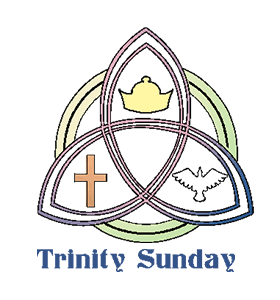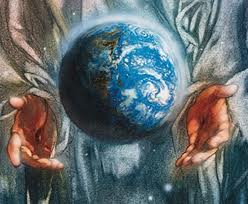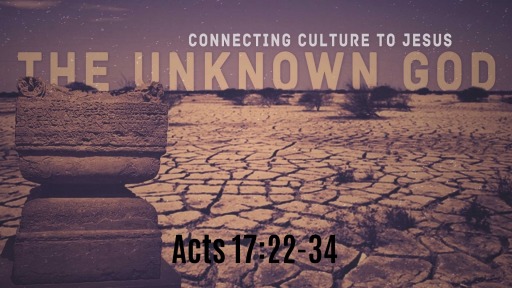STATEMENT OF FAITH
Heaven Preview Foundation's purpose is to extend unconditionally intellectual, spiritual, psychological, and material support to people of all faiths and to those who have no faith. Although we never attempt in any way to change the religious convictions of any of our staff members, collaborators, donors, or grantees, we believe it is important for us to describe our faith, which is the basis for our dedication to serve others. You may review our views in eight essential areas below.

SCRIPTURES
We believe that "All Scripture is God-breathed" (2 Timothy 3:16). Keeping in mind that as mortal human beings living in a fallen world, our comprehension abilities are limited, we were given in the Scriptures all we need to know about life and eternity. However, the Scriptures themselves point out that God speaks through other means as well such as "prophets, visions, and dreams" (Numbers 12:6). The beauty and order in nature also testify about the character of God as its Creator: "For since the creation of the world God’s invisible qualities—his eternal power and divine nature—have been clearly seen, being understood from what has been made" (Romans 1:20). Many other times, God will speak to us through people and circumstances the He appoints at a certain time for a certain purpose in our lives. However, no other source of divine revelation will ever contradict the truths revealed in the Scriptures, so the Scriptures remain the standard by which we should evaluate any other revelation.

CREATION
We believe that God created the universe and every form of life in it according to the account in the Book of Genesis. We believe that everything God created was good, and that we should not invasively interfere with the balance and beauty of nature. God gave us a clean planet, and polluting its air, waters, and earth is an act of disrespect to our Creator, which in turn has negative consequences on people's health. Acts of aggression on the creation will also be punished as Revelation 11:18 implies God will "destroy those who destroy the earth. We also believe in the sacredness of the seeds as bearers of the genetic code, with which we should not tamper (Leviticus 19:19, Deuteronomy 22:9).
God also created the body, psyche, and mind of every human being. Unlike any other living creatures, the human being was endowed with a soul, which is capable of establishing a spiritual relation with God through the Holy Spirit. For a person who chooses to believe in God and follow Jesus Christ, a process of spiritual creation takes place, which will regenerate his/her soul and enable it to live eternally in the presence of God: "Therefore, if anyone is in Christ, the new creation has come: The old has gone, the new is here! All this is from God, who reconciled us to himself through Christ and gave us the ministry of reconciliation" (2 Corinthians 5:17-18). This process is also called being born again. A born-again Christian will have spiritual tools in coping with the earthly challenges: absolute trust in a God Who answers prayers, the wisdom, joy, and peace that come from the Holy Spirit, and the ability to love as Christ loved us.



We believe that what the Scriptures call "sin" is actually detrimental to our physical, mental, and spiritual health. God Who created us also knows what behavior best suits our complex design, functions, and purpose, and He forbids certain practices just because He knows they will create disorder, imbalance, and eventually physical and spiritual death. Every sin mentioned in the Bible has medical, psychological, and social negative consequences. For example, sexual promiscuity leads to venereal diseases, some of which are fatal, such as AIDS.
TRINITY
We believe that there is only one eternal, holy, loving, omniscient, and omnipotent God co-existing in three persons: Father, Son, and Holy Spirit. All three Persons of the Trinity were actively involved in the creation of the universe and of man as accounted in the books of Genesis and of the Gospel according to John, where Jesus's presence as "the Word" is mentioned: "In the beginning God created the heavens and the earth. Now the earth was formless and empty, darkness was over the surface of the deep, and the Spirit of God was hovering over the waters" (Genesis 1:1-2). "In the beginning was the Word, and the Word was with God, and the Word was God. He was with God in the beginning. Through him all things were made; without him nothing was made that has been made" (John 1:1-2). The Holy Trinity also appears manifested in three Persons at Jesus Christ's baptism: "As soon as Jesus was baptized, he went up out of the water. At that moment heaven was opened, and he saw the Spirit of God descending like a dove and alighting on him. And a voice from heaven said, 'This is my Son, whom I love; with him I am well pleased'" (Mathew 3:16, 17)
God the Father was not only involved in the creation, but also in the salvation plan that is designed to restore mankind to a state of holiness and grant people access to eternal life in His presence. This restoration work involved Christ's expiatory death on the cross for our sins and our acceptance of His gift and surrender to live our life with Him and for Him: "For God so loved the world that he gave his one and only Son, that whoever believes in him shall not perish but have eternal life" (John 3:16). In God's economy, in order to reconcile His holiness and justice with His grace and love, a perfect sacrifice had to be brought as ransom for the sins of each human being.
Christ, the only Son of Man who was also the Son of God, blameless and sinless, was the only One Who could meet these criteria. Christ walked on this earth only 33 years but impacted the whole history of mankind. We believe that Christ shall return to Earth at a time known only by the Father and in a way that will be visible to everybody.
After His ascension to Heaven, Christ remains our High Priest and Intercessor to the Father, but He also sent us the Holy Spirit Who is actively influencing and guiding the life of every believer: "And I will ask the Father, and he will give you another advocate to help you and be with you forever—the Spirit of truth. The world cannot accept him, because it neither sees him nor knows him. But you know him, for he lives with you and will be in you" (John 14:16-17).

Add Text Here...
We will have perfection only in the New Jerusalem as depicted in the book of Revelation. Until then, the good crops have to co-exist with the weeds (Matthew 13:24-29). There are legitimate reasons on a higher spiritual level for which God does not eradicate evil from this world right now. In the parable of the weeds, Jesus explains it in a very accessible way: the farmer decides not to uproot the weeds while the good crops are still maturing because "while you are pulling the weeds, you may uproot the wheat with them" (Matthew 13:29). We may not understand why God allows suffering in this world, but we have to trust Him that everything He does He does it out of love for us because "God is love" (1 John 4:8).

And while we co-exist with evil and while we are being deeply hurt, there is something we can do to undermine suffering: we can choose to allow God to comfort us and restore us and use our own healing to heal others who have experienced the same type of suffering. We can take our own suffering and change it by God's own model of compassion into a tool of eliminating suffering for others. This is the way God wants us to handle suffering on this Earth: "Praise be to the God and Father of our Lord Jesus Christ, the Father of compassion and the God of all comfort, who comforts us in all our troubles, so that we can comfort those in any trouble with the comfort we ourselves receive from God" (2 Corinthians 1:3, 4).
Add Text Here...

We believe that spiritual forces of evil are real and active in this world and that they particularly act on human fleshly and material desires. So as we oppose them in our own lives or while we intercede for others trapped by such desires, we should be aware of the existence of evil spirits that are behind them: "For our struggle is not against flesh and blood, but against the rulers, against the authorities, against the powers of this dark world and against the spiritual forces of evil in the heavenly realms" (Ephesians 6:12). We should also be aware of the fact that these forces of darkness can be defeated by the power of the Holy Spirit with Whom we need to connect through prayer, fasting, and immersion in the Scriptures: "God is light" (1 John 1:5) and "The light shines in the darkness, and the darkness has not overcome it" (John 1:5).
PEACE
Heaven Preview Foundation promotes pacifism as we believe this is a Scripture-based position. Jesus himself warned Peter against armed defense when the latter pulled out his sword to protect Jesus in the Garden of Gethsemane: "'Put your sword back in its place,' Jesus said to him, 'for all who draw the sword will die by the sword'" (Matthew 26:52). The concepts of love for our enemies and non-retaliation ("turning the other cheek") preached by Christ (Matthew 5: 39, 44) leave no room for verbal or physical violence. Moreover, we believe that peacemaking is a Christian mandate since Jesus said "Blessed are the peacemakers, for they will be called sons of God" (Matthew 5:9). Historically, it should be noted that during the first three centuries of Christianity, Christians were known for refusing to kill in military combat. Also the vision the prophet Isaiah had about the future world God will create clearly excludes war: "They will beat their swords into plowshares and their spears into pruning hooks. Nation will not take up sword against nation, nor will they train for war anymore" (Isaiah 2:4).


Add Text Here...
SALVATION AND INTERFAITH DIALOGUE
We believe that salvation comes through repenting of one's sins and accepting God's forgiving grace manifested in Christ's sacrifice on the cross to pay for our sins. "The blood of Jesus Christ cleanses us from all sin" (1 John 1:7). Faith is indispensable to attain salvation. The Apostle Paul wrote to the Ephesians: "For by grace you have been saved through faith. And this is not your own doing; it is the gift of God, not a result of works, so that no one may boast" (2:8-9). If people could have been saved just by their own good works, or by animal sacrifices described in the Old Testament, there would have been no need for Christ to die on the cross for our sins. However, it is God's desire that a person devoted to Him will bear fruit for His glory. A person who has genuinely devoted his/her life to God will make decisions under the influence of the Holy Spirit and will also perform acts of compassion. Christ made it very clear in Mathew 25:34-40 that at the Last Judgment, on His return, we will be judged based on our good works: "“Then the King will say to those on his right, ‘Come, you who are blessed by my Father; take your inheritance, the kingdom prepared for you since the creation of the world. For I was hungry and you gave me something to eat, I was thirsty and you gave me something to drink, I was a stranger and you invited me in, I needed clothes and you clothed me, I was sick and you looked after me, I was in prison and you came to visit me.’…‘Truly I tell you, whatever you did for one of the least of these brothers and sisters of mine, you did for me.’" Good works are an inevitable consequence in the life of a saved individual who has genuine faith because salvation and faith are transformative. We are called to show the world that we belong to Christ through the manner we think, speak, and act, and this is an everyday process of sanctification based on Christ-like love: "As I have loved you, so you must love one another. By this everyone will know that you are my disciples, if you love one another" (John 13: 34-35).
A Christ-like love also includes caring for others who may have other faiths or no faith at all, those who are our enemies, and sinners, all of whom Christ died for. When the apostle Paul went to preach the gospel of Jesus Christ in the Greek city of Athens, and he was invited by Epicurian and Stoic philosophers to present his teaching in a speech in the marketplace at Aeropagus, he started with an element that was already known to his audience: an altar they had dedicated to an unknown god. Further, when he went on to explain the nature of this unknown god to his Greek audience and especially that people were a reflection of God's image, Paul cited from scholars that were known to his listeners, the Cretan philosopher Epimenides and the Cilician Stoic philosopher Aratus: "‘For in him we live and move and have our being.' As some of your own poets have said, ‘We are his offspring’" (Acts 17:18). Thus, Paul sets an example that we should follow. We can find glimpses of God's revelation in the writings of other religions. We can rejoice in our common ground and build on it a foundation of mutual respect and understanding, which we then can use to lead people to what is missing from their wealth of spirituality: Jesus Christ.

Apostle Paul at Aeropagus

On the other hand, we will be pleasantly surprised to actually discover how close to God's standards people of other religions may be. Buddhism, for example, promotes an altruistic love, humbleness, and non-violence, which seem to come straight out of Christ's sermon on the mountain. Muslims have a rigorous lifestyle of prayer which Paul recommends in 1 Thessalonians 5:17 where he urges us to "pray continually," something many Christians overlook. Paul also encouraged us in Philippians 4:8 to be broad-minded and to feed on healthy spiritual food that may come from other sources and which does not contradict but reinforces our Christian beliefs and our obedience to God: "Finally, brothers and sisters, whatever is true, whatever is noble, whatever is right, whatever is pure, whatever is lovely, whatever is admirable—if anything is excellent or praiseworthy—think about such things."
Therefore, Heaven Preview Foundation encourages interfaith dialogue as a way of not only practicing Christian love to all people and of sharing the good news that Christ died for our sins and that the Holy Spirit is available to help us attain the holiness other religions also strive for, but also as a way to strengthen our own Christian faith through fellowship with believers in similar teachings. At the same time, we uphold the certainty that awareness of Christ's sacrifice and of His grace manifested through the Holy Spirit is necessary for salvation and for living a holy life in perfect communion with God. The Roman centurion Cornelius "and all his family were devout and God-fearing; he gave generously to those in need and prayed to God regularly" (Acts 10:2). Such good deeds and meditation and prayer are common practice in most religions. It is obvious that God honors such a heart-felt desire to serve Him and such conduct; the angel who appears to Cornelius confirms it: “Your prayers and gifts to the poor have come up as a memorial offering before God" (Acts 10:2). But it is also God's desire that such people will be given the ultimate key to eternal life, which is acceptance of Christ's sacrifice as redemption for our sins. This is why Peter had to come talk to Cornelius about Christ and baptize him and his family (Acts 10:5-48).

Peter Baptizing the Centurion Cornelius, by Francesco Trevisani, 1709
We believe that the human body was designed by God to be a Temple, clean and holy enough so that God's Holy Spirit could live in it (1 Corinthians 6:19). People who "sin against their own bodies" (1 Corinthians 6:18) not only cannot maintain the right relationship with God, but also harm their physical bodies through the use of toxic substances that negatively affect their internal organs or by engaging in types of sexual behaviors God forbade and which will expose them to physical diseases and psychological imbalance.
Add Text Here...
Also because we were not made for sin, but for holiness, when we sin, we are more prone to depression, more vulnerable to dissatisfaction with the world and with ourselves, which we then have to alleviate by other addictive behaviors such as substance abuse. Ultimately, because God's very nature is holiness, we cannot sustain a connection with Him while we are in sin, so, apart from our Creator, we are spiritually dead and without access to eternal life. This gap created by sin between us and God can be bridged only by Christ's cross; when we come to the feet of the Cross, we receive forgiveness, healing, and the strength to stay away from sin and to fulfill our God-given potential. The Cross should be a daily pilgrimage destination for a Christian.

